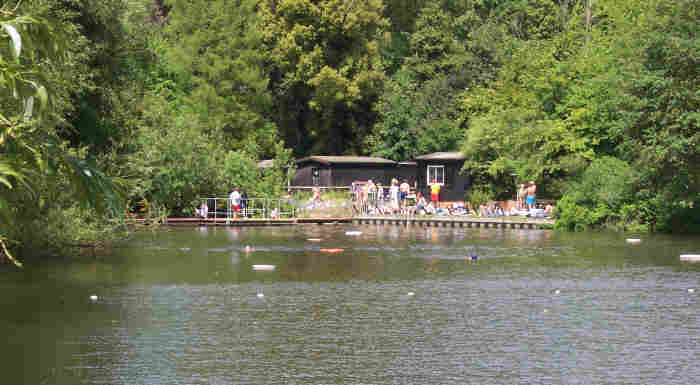HEATH PONDS COURT VICTORY - THE WIDER IMPLICATIONS


|
The judgment issued by Mr Justice Stanley Burnton in the judicial review brought by the Hampstead Heath Winter Swimming
Club goes far beyond freeing the Corporation of London from the risk of prosecution by the HSE if they allow self
regulated swimming in the Heath ponds. Here are some examples followed by the relevant extracts:
It clarified the scope of the Health and Safety At Work Act (1974):
'The grant of access to the Mixed Pond to self-regulated swimmers would not constitute "the conduct of
(the Corporation's) undertaking"; 29(c) Any risk created by members of the Club swimming in the Pond would be the
result of their deciding to do so with full knowledge of the risks involved. Their exposure to such risks would not
have been caused by the conduct of the Corporation's undertaking, but by their own action.'
and:
'In my judgment, for the purposes of section 3 of the 1974 Act, if an adult swimmer with knowledge of the risks of
swimming chooses to swim unsupervised, the risks he incurs are the result of his decision and not of the permission
given to him to swim. And it follows that those risks are not the result of the conduct by the employer of his
undertaking, and the employer is not liable to be convicted of an offence under that provision.'
And puts to rest the argument that a council, relieved of its obligation under civil law by the House of
Lords ruling in the Tomlinson case, could still face criminal prosecution:
'It would be anomalous if Congleton Borough Council, so emphatically relieved by the House of Lords of liability in tort
to Mr Tomlinson, were to be held to have infringed section 3 of the 1974 Act by failing to prevent his swimming in the
lake. It would mean that the individual liberty that the House of Lords thought it was upholding was illusory: the
criminal law would take away what the House of Lords thought it was establishing. And so I think it right to derive from
the judgments in Tomlinson an approach to the interpretation and application of the 1974 Act in the present factual
context.
|
The latest judgment, coupled with the Law Lords ruling in the Tomlinson case means that
now, at long last, public bodies in control of most traditional open water bathing sites have no excuse for
introducing or maintaining swimming bans. If you know of a site which has been subjected to a swimming ban on grounds
of concern over civil litigation or prosecution by the HSE we would like to hear from you.
|
The importance of the criminal law not introducing a liability where none existed in civil law was recently
considered by HHJ Lawson QC in HSE v Kent CC & Sevenoaks DC (13 June 2005 Maidstone Crown Court). Here the councils
failed to fell a diseased tree which had subsequently fallen on a lorry, killing a passenger in the cab.
Neither council could be sued for damages in civil law because the Highways Act does not impose a duty of care.
However, the HSE contended that it had a right to prosecute the councils in criminal law for failing to conduct
its undertaking in a safe manner. The court ruled that it would be anomalous if a highway authority which was
relieved of its duty in tort were held to have infringed section 3 of the 1974 Health and Safety at Work Act.
In other words: in the absence of a duty of care the defendant cannot be made criminally liable.
Source: John Cooper and Simon Antrobus - Report on the court's attitude to responsibility for one's own actions
The Solicitors Journal August 2005

The Mixed Pond at Hampstead Heath


|